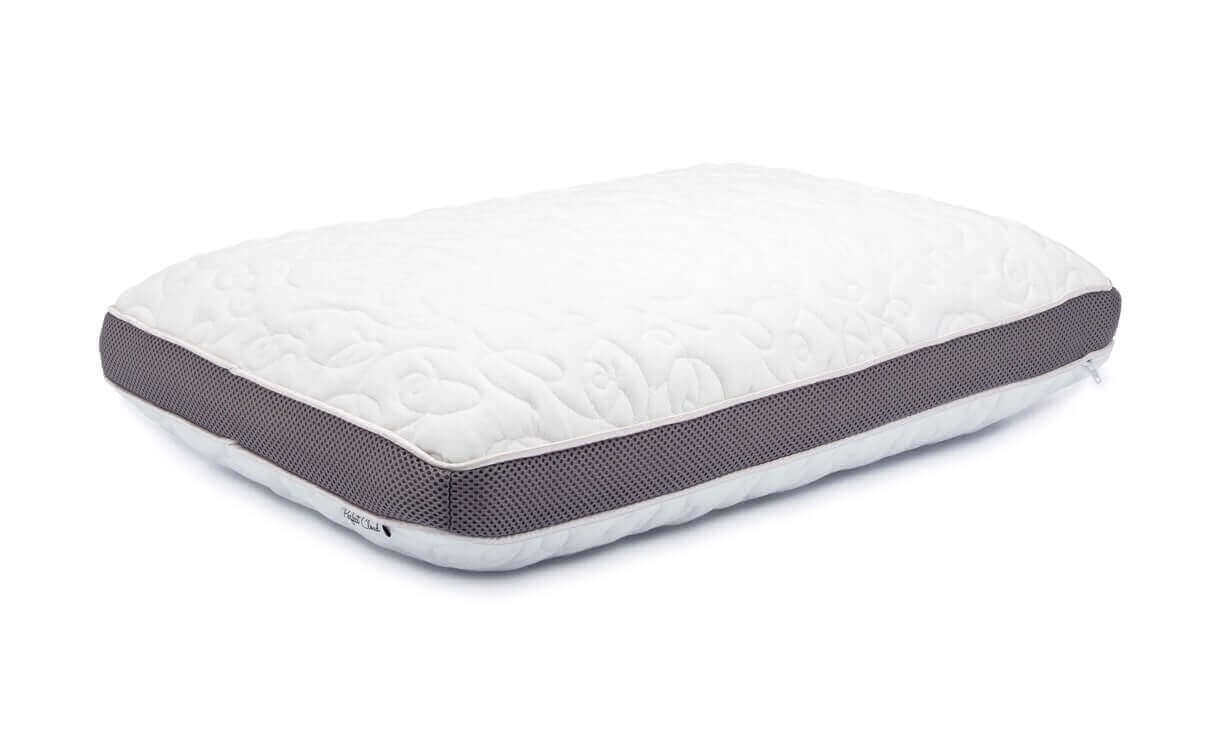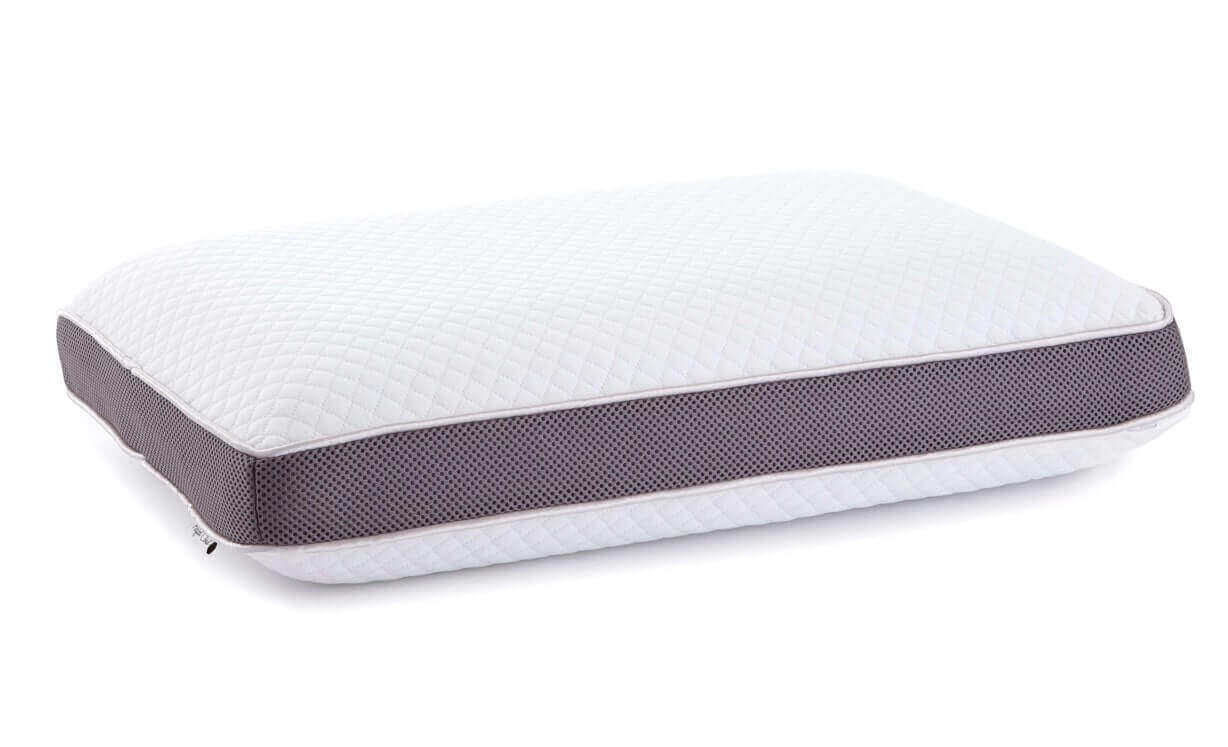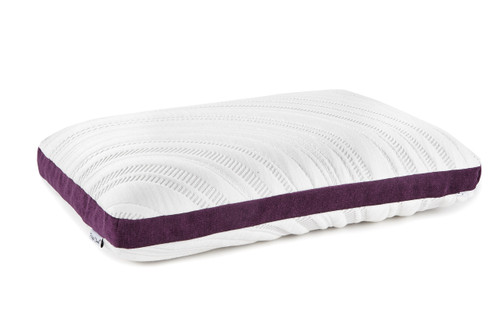7 Easy Remedies to Stop Snoring
Posted by Brenton on 7th May 2020
If you are a snorer, you’re not alone. Apparently, half of all Americans snore, but the problem is a lot more pervasive in men. Snoring occurs as a result of vibration of relaxed tissues in the throat when you breathe through your mouth. This is what produces snoring, whether your snore is like a cat’s purr or as harsh as chalk on a blackboard.
Snoring is often associated with underlying health conditions like obesity, obstructive sleep apnea, sleep deprivation, and structural abnormalities in the nose, throat, or mouth. While these conditions require medical attention, snoring is most commonly benign and can be linked to your sleep posture or other lifestyle choices. Whether or not your snoring is caused by an underlying condition, it helps to deal with the problem. Snoring can disrupt or impair sleep quality and even if it doesn’t affect you, it would most likely disturb your partner’s sleep.
Home treatments and remedies for snoring can help improve your sleep quality and also lower the risk of health conditions linked to snoring. Many of these remedies are also beneficial for your overall health, so it makes sense to adopt them anyway.
7 Simple Remedies to Stop Snoring
1. Correct Your Sleep Position
While there are numerous factors that can contribute snoring, one of the most common causes is your sleep posture – sleeping on your back. This may seem like the most natural sleep posture, but if you have a problem with snoring, this could very well be a contributing factor. When you sleep on your back, you can experience narrowing or collapsing of the airway that triggers snoring.
This restriction of the airways can occur due to both internal and external factors. Weakened jaw muscles are a common condition because of our highly processed diets. As a result, the mouth tends to open during sleep. When this happens, the lower jaw falls back, constricting the airway and causing you to snore. The forces of gravity combined with the weight of your neck can also cause or increase constriction of the airways when sleeping on your back.
Sleeping on your side may be just what you need in such situations as it can reduce the risk of airway restriction or collapse. Some studies show that changing your sleep posture in this manner can not only reduce the duration of snoring, but can also reduce its intensity.
2. Practice Nasal Irrigation & Steam Inhalation
As we’ve mentioned before, there are various possible causes for snoring. While nasal irrigation and steam inhalation won’t help in all situations, these simple solutions can be effective when dealing with snoring linked to sinusitis, respiratory allergies, and nighttime congestion.
Nasal irrigation actually derives from the ancient Indian Ayurvedic practice of jal neti. Sterile saline water is used to cleanse and flush out the nasal passages, reducing congestion. Water is poured in from one nostril and drains out from the other, cleansing the passages completely.
The procedure can be tricky if you don’t have proper guidance however, so it may be best to stick to steam inhalation with added essential oils like peppermint or eucalyptus.
3. Elevate Your Head
Changing your sleep posture isn’t always easy and may not be feasible if you have another condition like lower back pain. In such situations the next best thing you can do would be to elevate your head during sleep. You can do this by using special anti-snoring pillows or by using an inclined bed.
Anti-snoring pillows are specially designed to correct your sleep posture so as to lower the risk of snoring. While many of these pillows are meant to make sleeping on your side more comfortable, some are also designed to simply ensure that your body isn’t completely flat – keeping your head slightly elevated. Inclined beds (the type you find in hospitals) can also help, but may not be as practical.
Sleeping with your head at an incline can provide quick relief from snoring as demonstrated in a study that appeared in the journal Sleep and Breathing. A gentle incline or elevation of just three to four inches can help reduce snoring, as this prevents the tongue from falling back and obstructing the throat and airways.
4. Get a Humidifier
This is one of the simplest remedies for snoring, but it won’t work for everyone. If your snoring is caused primarily by nasal congestion or allergies that tend to worsen with low humidity levels or dry air, it would make sense to invest in a humidifier.
Dry air can increase throat and nasal membrane dryness, causing irritation and swelling of the nasal tissues. This can restrict airflow and increase vibration of loose tissue in the throat, aggravating snoring. By raising the humidity levels, this dryness and inflammation of the airways may be reduced, which could open up the airways to relieve snoring.
5. Use Anti-Snoring Mouthpieces or Nasal Dilators
When obstruction or narrowing of the airways causes snoring, it helps to use nasal dilators or nasal strips. These devices are designed to keep the nasal passages open to allow for smooth airflow. They work by pulling the nasal passages open from within, making it easier to breathe freely. While nasal dilators and strips can relieve snoring, they may not be effective if you are dealing with obstructive sleep apnea.
Anti-snoring mouth devises on the other hand can be extremely effective at stopping snoring, when the problem is connected to airway obstruction caused by the tongue falling back towards the throat. Termed as mandibular advancement devices, these mouthpieces are worn in the mouth and they help to keep the tongue forward, preventing airway obstruction. They also help correct the position of the mouth during sleep. This expands the airways and prevents snoring.
6. Try Losing Excess Weight
Everyone’s obsessed with weight loss these days, so keep in mind that weight loss is only recommended if you are clinically obese or overweight. There is considerable evidence to show that snoring occurs with greater frequency and severity if you are overweight. This is because the increase in fat tissue and weakened muscle tone in the region of the throat makes you more likely to snore.
Snoring when you are overweight is a double whammy of sorts, as it also makes it harder for you to lose weight. Studies show that sleep impairment, as with sleep apnea, leads to a drop in leptin levels and a rise in ghrelin. This leads to reduced satiation and increased hunger respectively. This is why it’s important to address excess weight gain early.
Excess weight is also known to exacerbate chronic pain disorders, making it important to lose weight. After all, many of these conditions like fibromyalgia and osteoarthritis are linked to sleep impairment and snoring.
7. Quit Smoking & Cut Back on Alcohol
Smoking is regarded as one of the biggest, if not the worst, risk factor for snoring. One study suggests that the risk of snoring is about four times higher than it is for obese individuals, who are already at risk of snoring. Smoking is believed to irritate and increase inflammation of the upper airways. This obstructs airflow and increases the likelihood of snoring. Some smokers may also experience nicotine withdrawal during sleep, which reduces sleep quality and raises the risk of upper airway obstruction. Quitting smoking is the best thing you can do, not just to stop snoring, but to improve your general health.
Alcohol is nowhere near as harmful as smoking and mild to moderate consumption usually poses no health risk. However, excessive alcohol intake could contribute to snoring because of its relaxing effect on the throat muscles, which makes them more likely to vibrate. If you do drink regularly, it makes sense to limit alcohol consumption at least later in the day.
If you find no respite from snoring with these remedies or have had a sudden onset of snoring it would be best to consult your health care provider as soon as possible.











